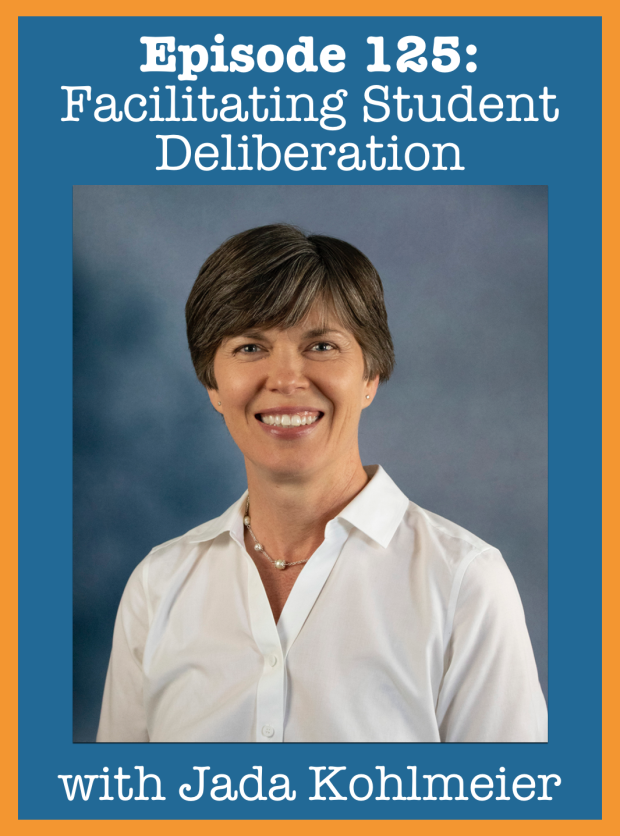In Episode 125 Dan and Michael talk with Jada Kohlmeier about her new article published in Theory & Research in Social Education, “Examining the relationship between teachers’ discussion facilitation and their students’ reasoning.”

Books, Articles and Other Amazing Resources
- Kohlmeier, J. & Saye, J. (2019). Examining the relationship between teachers’ discussion facilitation and their students’ reasoning. Theory & Research in Social Education, 47(2), 176-204.
- Kohlmeier, J. & Saye, J. (2019). Examining the relationship between teachers’ discussion facilitation and their students’ reasoning. Theory & Research in Social Education, 47(2), 176-204.
- Kohlmeier, J. & Saye, J. (2017). Developing Discussion Leaders Through Scaffolded Lesson-Study. The Social Studies, 108(1), 22-37.
- Kohlmeier, J. & Saye, J. W. (2014). Ethical reasoning of US high school seniors exploring just versus unjust laws. Theory & Research in Social Education, 42(4), 548-578.
- Kohlmeier, J. & Saye, J. W. (2014). Ethical Reasoning of High School Seniors Exploring Issues of Free Speech. Social Studies Research & Practice, 9(2), 33-47.
- This is the Walter Parker piece on seminar and deliberation we discussed: Parker, W. C. (2001). Teaching teachers to lead class discussions. Democratic education in content and method. In J. J. Patrick and R. S. Leming (Eds.) Principles and practices of democracy in the education of social studies teachers: Civic learning in teacher education, Volume 1. (111-133). Bloomington, Indiana: ERIC Clearinghouse for Social Studies/Social Science Education.
- This is the chapter we discussed on scoring discussions: Harris, D. (1996). Chapter 31: Assessing discussion of public issues: A scoring guide. In R.W. Evans & D.W. Saxe (Eds.) Handbook on teaching social issues. (pp. 289-297) Washington, D.C.: National Council for the Social Studies.
Biography
Jada Kohlmeier is a Professor of Secondary Social Science Education at the Auburn University. She serves as an Associate Director for the Persist Issues in History Network (www.pihnet.org) and has published work on enhancing students’ historical thinking, using scaffolded lesson study in teacher professional development, enhancing classroom discussion of social issues, and promoting ethical and civic reasoning of pre-service teachers and secondary students.


